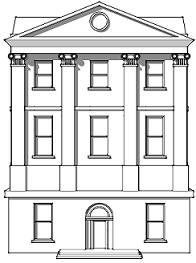I have a fantastic Christmas haul of books to read, so it's good that I was already so close to the end of The Dispossessed by Ursula K. Le Guin. It's the third I've read by her (after The Lathe of Heaven and The Left Hand of Darkness) and like the others, it took a couple of tries before I dove in. Le Guin is most easily classified as a scifi novelist, but her books are more about cultural anthropology than technology or prediction; she uses the plot vehicle of space travel to explore microcosms of human behavior, often posing at least one prominent difference from Earth's reality. In The Left Hand of Darkness, she explored a world with absolutely no concept of gender, split between two nations: one feudalistic, the other, a totalitarian state.
The Dispossessed is a bit more complex, simply for not defining a single difference from ordinary society as striking as the absence of gender in The Left Hand of Darkness. Instead, she begins with two worlds: one resembles an idyllic Earth, with elements of eighteenth-century opulence and nineteenth-century industrial expansion. The second is its moon, which has been colonized by socialist anarchists, self-exiled. Though I'm skeptical as usual of Le Guin's politics, I'm also grateful for her own skepticism, written most plainly in the book's subtitle: An Ambiguous Utopia. Despite the protagonist's multi-world tour of clashing economic models, the book is often surprisingly tender and personal. Le Guin caught me, just as she did in the other two books, with her disarming moments of pure observation. Her own improbable skepticism and ambiguity stems from an understanding of people, the simple understanding that an individual human will always be more important, more complex, and more fascinating than any economic idea.
My now-battered paperback is riddled with dog ears to mark the quotes I liked. This is one of the passages that moved me the most. It reminded me of the feeling of making films, or of losing myself in a story I'm writing. The feeling of doing the work that fills you with passion and purpose.
The wall was down. The vision was both clear and whole. What he saw was simple, simpler than anything else. It was simplicity: and contained in it all complexity, all promise. It was revelation. It was the way clear, the way home, the light.
The spirit in him was like a child running out into the sunlight. There was no end, no end...
And yet in his utter ease and happiness he shook with fear; his hands trembled, and his eyes filled up with tears, as if he had been looking into the sun. After all, the flesh is not transparent. And it is strange, exceedingly strange, to know that one's life has been fulfilled.
Yet he kept looking, and going farther, with that same childish joy, until all at once he could not go any farther; he came back, and looking around through his tears saw that the room was dark and the high windows were full of stars.
Saturday, 26 December 2009
Subscribe to:
Post Comments (Atom)





No comments:
Post a Comment